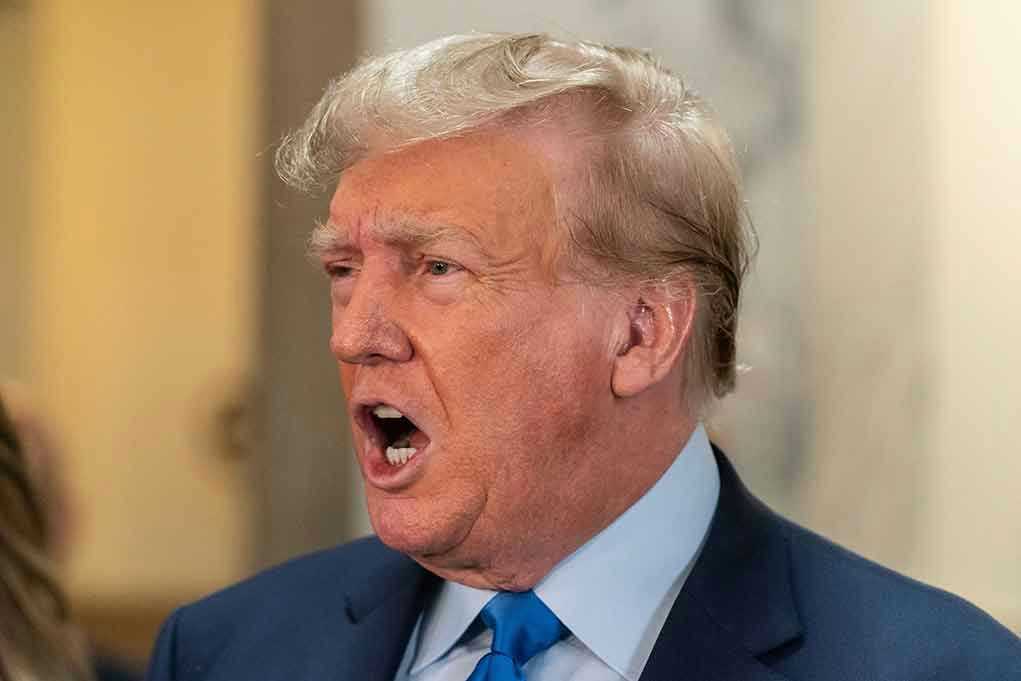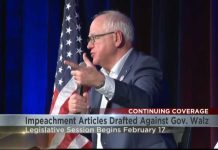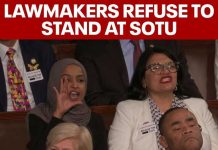
A Republican-led bill aims to give President Trump the unprecedented power to appoint Washington, D.C.’s attorney general—eliminating local voters’ say and intensifying the struggle over federal versus local control, sparking fierce debate over constitutional checks and the future of American self-governance.
Story Snapshot
- House Oversight Committee to mark up a bill letting the president directly appoint D.C.’s attorney general, removing local electoral power.
- The bill would immediately terminate the current attorney general and bypass Senate confirmation for a new appointee.
- This proposal follows Trump’s recent federalization of D.C.’s police in response to persistent crime, deepening tensions between local and federal authorities.
- Supporters see the move as a needed law-and-order intervention; critics warn it erodes local democracy and sets a precedent for federal overreach.
Federal Push to Control D.C. Law Enforcement
In August 2025, President Trump federalized the Metropolitan Police Department and deployed National Guard troops to Washington, D.C., citing persistent juvenile crime and the perceived failure of local leadership. This assertive action marked a dramatic shift in the balance of power, as Trump’s administration claimed immediate authority over D.C.’s law enforcement apparatus. The federal intervention signaled a broader Republican effort to increase federal oversight and curb what many conservatives view as ineffective, left-leaning local governance undermining public safety and order.
Shortly thereafter, D.C. Attorney General Brian Schwalb filed a lawsuit challenging the federal takeover, arguing it undermined home rule and local democratic accountability. Amid this ongoing legal battle, Rep. Pat Fallon (R-TX) introduced a bill in early September that would strip the D.C. attorney general’s office of its elected status. Instead, the president would gain direct appointment power, with the current officeholder’s term terminated immediately upon enactment. This move would also eliminate the Senate confirmation process, granting the White House unchecked authority to select the next top prosecutor for the nation’s capital.
House Oversight to take up bill giving Trump power to appoint DC attorney general https://t.co/sNprrRLyVO
— Washington Examiner (@dcexaminer) September 4, 2025
Shifting Power: Implications for Local Autonomy and Democracy
The proposal represents the most significant reduction in D.C. self-governance since the Home Rule Act of 1973, which granted the city limited autonomy but left ultimate authority with Congress. Since 2014, D.C. residents have directly elected their attorney general—a reform widely seen as a step toward greater accountability and local empowerment. By reversing this progress, the current bill would not only diminish D.C. residents’ say over their justice system but also set a precedent for increased federal intervention in other cities. Supporters argue this is necessary to restore law and order, but critics warn it opens the door to politicization and erodes constitutional safeguards.
Opponents—including D.C. officials and civil liberties organizations—contend that removing local control over law enforcement undermines American democratic norms. Legal scholars caution that vesting such sweeping power in one office, without checks like Senate confirmation, risks turning the attorney general’s post into a political tool. Meanwhile, Trump and his allies argue that decisive federal action is needed to address rising crime and bureaucratic inefficiency—framing local resistance as obstructionist and out of touch with public safety needs.
Stakeholders, Motivations, and Broader Ramifications
Key players in this battle include President Trump, Rep. Pat Fallon, the House Oversight Committee, D.C. Attorney General Brian Schwalb, and Mayor Muriel Bowser. Trump and Republican lawmakers are motivated by a desire to reclaim law and order, assert federal authority, and reverse what they perceive as years of ineffective, leftist governance. D.C. officials, by contrast, seek to defend home rule and democratic accountability. The Justice Department, caught in the middle, must balance the president’s directives with long-established legal norms and local relationships.
The bill’s immediate impact would be to remove current attorney general Schwalb and allow Trump to install a replacement—potentially shifting prosecutorial priorities overnight. Longer term, the move could erode local democratic rights, embolden future federal interventions in city governance, and politicize law enforcement in ways that alarm many experts. Broader implications extend beyond D.C., as this precedent may influence debates over federal versus local control in other jurisdictions, touching on issues key to constitutional conservatives: limited government, local autonomy, and balanced power.
Expert analysis reveals deep divisions over the wisdom and constitutionality of this approach. The Brennan Center and legal scholars warn that diminishing DOJ independence and local accountability risks undermining the rule of law—referencing hard-learned lessons from post-Watergate reforms. Reform advocates fear the rollback of local initiatives, increased incarceration, and more punitive policies, while supporters insist that federal intervention is the only way to break through entrenched local failures. With the House Oversight Committee set to mark up the bill next week, all eyes are on Congress as it weighs the balance between restoring order and preserving the fundamental principles of self-governance.
Sources:
House Oversight to Take Up Bill Giving Trump Power to Appoint DC Attorney General
Project 2025’s Plan: Criminal Justice Under Trump
House Oversight Committee official statements
Trump’s First 100 Days: Friend or Foe to Criminal Justice Reform?
















